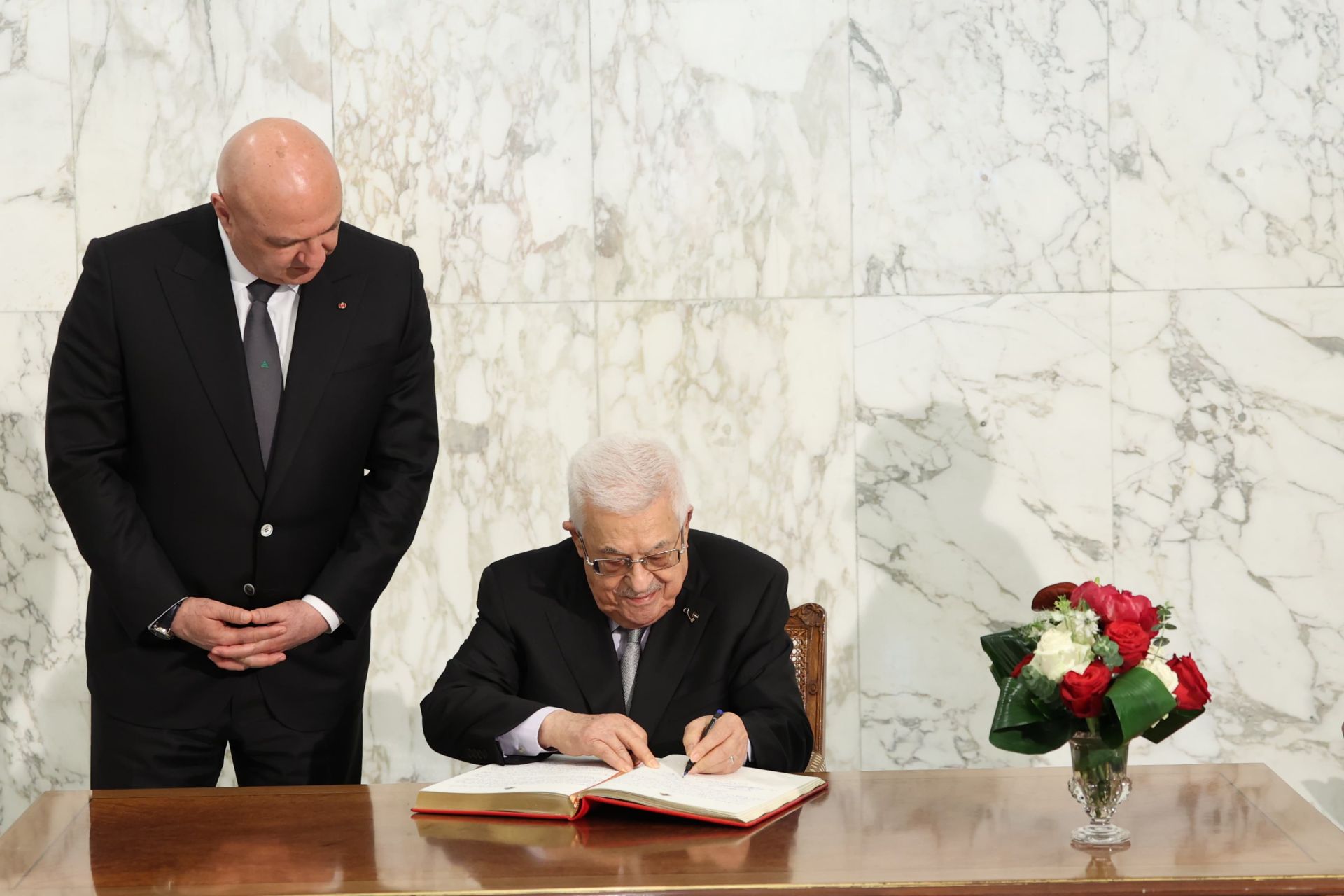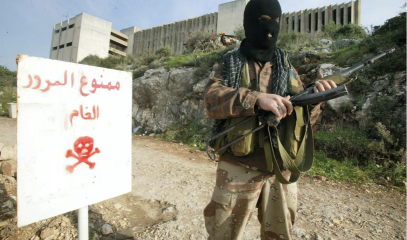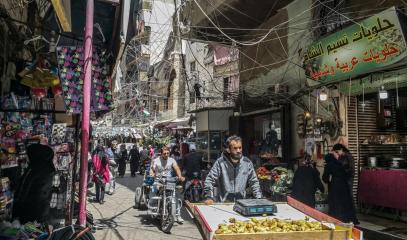Abbas in Lebanon: 'promises' but no date on disarming refugee camps
In his first visit to Lebanon since 2017, the Palestinian president is committed to disarmament, although without setting a timetable. This complex process is seen in Beirut as a prerequisite for the total end of Hezbollah's armed struggle. The joint statement with President Aoun includes an “implicit” recognition of Israel's right to exist.
Beirut (AsiaNews) – “The era of weapons outside the authority of the state is over,” Palestinian Authority leader Mahmoud Abbas said Wednesday on the first day of a 72-hour visit to Lebanon.
The main objective of this visit is to develop a plan for the disarmament of Palestinian camps, a fundamental step in Lebanon's reassertion of its internal security and sovereignty, both of which were lost at the end of the 1960s after the 1967 war with Israel, and the rise of Palestinian organisations.
As a result of that war, Arab countries lost Jerusalem, the Golan and the West Bank, all territories annexed or currently in the process of being annexed.
Abbas's visit is the first since 2017 to Lebanon, which is home to some 220,000 Palestinian refugees living in overcrowded camps outside the control of Lebanese authorities.
Spread across the country, near Tripoli, Beirut, Saida and Tyre, the major cities on the Lebanese coast, the twelve Palestinian refugee camps have become both armed fortresses and overcrowded slums over the years and decades. Politically, they reflect Arab divisions.
Lebanese President Joseph Aoun and his Palestinian counterpart, Mahmoud Abbas, are facing this heavy past, even as the war is still raging in Gaza. For observers, disarming the camps and Hezbollah are inseparable processes.
It goes without saying that taking away weapons from Hezbollah and the camps requires a considerable military and security effort on Lebanon’s part.
It is obvious that Lebanon cannot quickly recruit and train 8,000 to 10,000 additional men to both guarantee the security of the camps and disarm Hezbollah south of the Litani River, in accordance with Resolution 1701.
People close to the president note that it is with great caution that he is seeking to overcome the obstacles that stand in his way, with the greatest coming not from the outside, but from the inside.
That said, according to a Lebanese government official quoted by AFP, Abbas spoke on Wednesday of “the establishment of a mechanism to gather weapons and remove them from the camps,” but without a precise timetable. What is clear though, from past armed clashes between Fatah and Islamist groups in Ain al-Hilweh, near Saida (Sidon), that this disarmament will not be a straightforward task.
Proof of this is that following the launch of two unclaimed rockets at Israel last March, to which Israel responded by bombing the southern suburbs of Beirut, the Lebanese army sent, after investigation, a stern warning to Hamas, considered responsible for this serious breach of the ceasefire.
Any attack carried out from Lebanese soil will expose the Palestinian group to "the most severe measures", the Lebanese government warned. In addition, the Lebanese authorities demanded that four members of the organisation be handed over. Only two of them were, while the others are officially "on the run".
For its part, the Lebanese army has dismantled, peacefully and by mutual agreement, six training camps run by Palestinian organisations that are relics of the time of Syrian hegemony, located outside refugee camps, including in Na’ameh, near Beirut, and the Bekaa.
The American plan
Removing Lebanon and Syria from the Iranian axis of the "moumanaa" (stubbornness) is considered by Washington to be one of the centrepieces of its plan for the region. Proof of this is the surprise lifting of US sanctions imposed on Syria announced by President Donald Trump in the Saudi capital.
This lifting of sanctions, which amounts to recognition of the new power in Syria, has saved Syria from a "large-scale" civil war, said US Secretary of State, Marco Rubio, during a hearing before the US Senate Foreign Relations Committee. In turn, Iran’s return to Syria would be catastrophic, Rubio added.
In exchange for the end of sanctions, the US president asked Syrian President Ahmad al-Sharaa to control and possibly expel from Syria armed groups – the Islamic State, the Chechens, etc. – responsible for the massacres in the Alawite regions on the Syrian coast and the abuses against the Druze community.
He also asked him to normalise relations with Israel.
It is known that since President Trump's decision, Syrian Defence Minister Murhaf Abu Qasra gave armed groups a 10-day deadline last Saturday to join the country's forces, to unify internal ranks after Bashar al-Assad’s ouster.
Following this decision, the US president's deputy special representative for the Middle East, Morgan Ortagus, invited Lebanon "to take inspiration" from the Syrian president.
However, the Lebanese president still refuses to cut corners. "One thing at a time," say those close to him. Observers are now waiting for the concrete results of his talks with Abbas to judge the merits of his policy.
In their joint statement on Wednesday, the two presidents, Aoun and Abbas, insisted on “the need to achieve a just and stable peace in the region in order to allow the Palestinian people to establish their independent state, in accordance with international resolutions.”
They also stated that they "recognise the legitimate rights of all countries and peoples in the region," a statement that can be interpreted as a tacit recognition by Lebanon and the Palestinian Authority of the right of the Israeli state to exist. But this recognition is conditional on the realisation of the two-state solution in the Holy Land, which Benyamin Netanyahu's government rejects.
Admittedly, President Aoun has openly declared that he wants to return to a situation of "no war" with Israel, but everything suggests that it is, alas, the logic of force that will eventually prevail in the Middle East.









.png)










